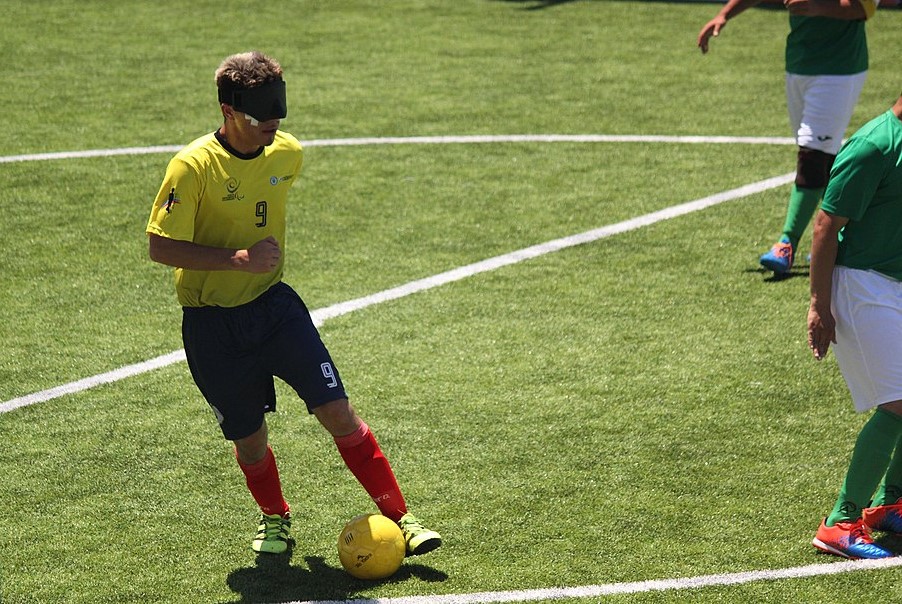On the same day that Belgium’s Kevin De Bruyne celebrated winning the Champions League with Manchester City, several of his compatriots also tasted European glory when Cécifoot de Charleroi lifted the European Blind Football League trophy.
Celebrating their tenth anniversary year, Cécizebras became European Champions last weekend.
While blind football may be much less publicised, there is no doubting the passion for playing for and supporting teams is just as fervent among those involved. The popularity of the game, amongst fans and players alike, is also on the rise.
“Popularity is growing a lot because the sport is amazing. In just two seconds you forget the disability and you can focus on their skills as football players,” Mariano Travaglino Football Project Manager at the International Blind Sports Federation (IBSA), told The Brussels Times. “People are often surprised by how quick, physical and technical blind football is. This is what makes it such a hugely popular sport.”
“In regard to encouraging more people to take up the sport, we organise seminars in every country monthly in order to increase the number of players taking up the sport and to promote it to a wider audience,” he added.
100 years of blind football
According to the ISBA website, football for the blind and partially sighted began in schools for people visual impairments.
While the Spanish are credited with being the pioneers of the sport after the first games taking place there in the 1920s, the game took off when Brazil embraced blind football in the 1960s, leading to the first national Championships being held in 1974.
Until ISBA took blind football under its wing in 1996 and began regulating the game, each country which had a team played according to different rules and with varying types of balls, pitches and playing surfaces.
Internationally recognised rules were then developed with the IBSA developing two disciplines – blind football for B1 athletes - those that have severe visual impairments, and partially sighted football for B2 and B3 players. The two groups still compete separately today.
Global reach
With a set of rules in place, the first IBSA Blind Football European Championships and IBSA Partially Sighted Football European Championships were both held in Barcelona, Spain, in 1997. The hosts became the first ever champions in both tournaments.
In the same year the blind football American Championships made their debut in Asunción, Paraguay. Brazil were crowned champions, showing that their prowess with a ball extended beyond sighted football. Their dominance was cemented a year later when Brazil won the first IBSA Blind Football world title on home soil in Campinhas.
In the following years regional and World Championships were also added to the schedule. In 2005 the blind football Asian Championships were added to the calendar in Ho Chi Minh, Vietnam, with Japan claiming the title. The African iteration of the competition was added a decade later, with hosts Morocco becoming the inaugural champions at the tournament.

